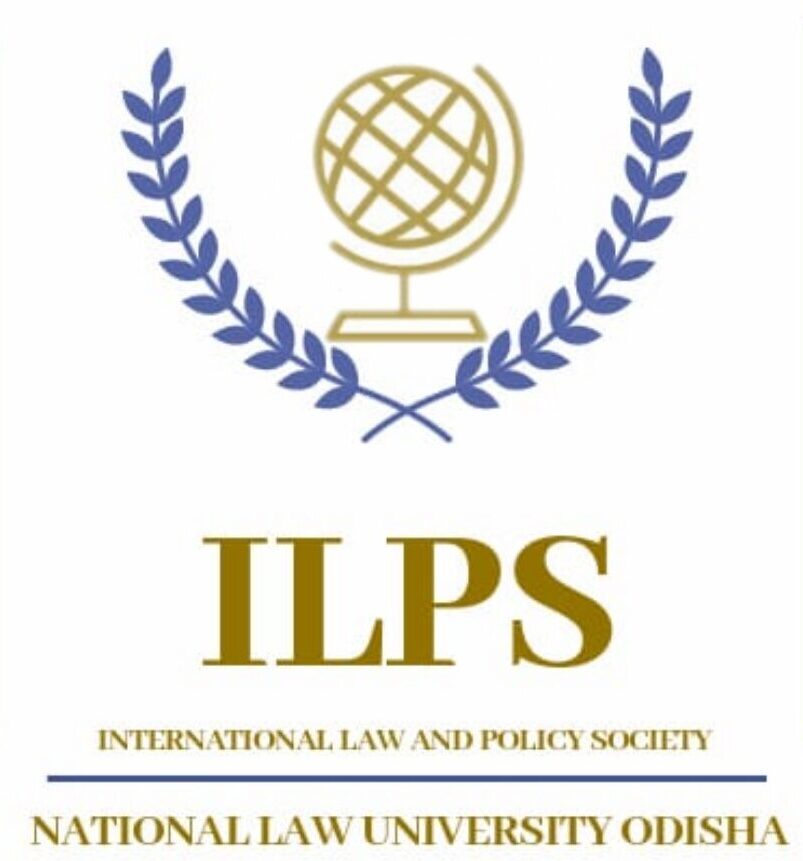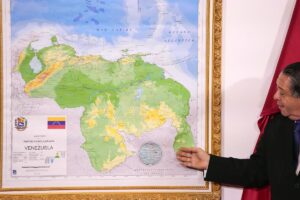
An Aspersion in the Area of International Law & Relations
Introduction
Following the 20th anniversary of the 9/11 attacks, on September 12, 2021, the FBI released a newly declassified document that is related to the alleged connection of Saudi Arabia in the 9/11 attacks. This development follows the executive order issued by President Joe Biden. Though the document provides information about contact between Saudi Arabian officials and the hijackers, it doesn’t present conclusive evidence to prove that the Saudi government was involved in the attack itself. Relatives and families of the victims have been pushing and requesting for the release of information about the FBI’s discoveries in the probe against Saudi’s connection to the attack. In 2004, the National Commission on Terrorist Attacks upon the United States (the 9/11 Commission) found no evidence that Saudi Arabia directly funded Al-Qaeda. On one hand, the Saudi embassy has stated that the documents contain no shred of evidence indicative of the government’s compliance in the attacks, but, to many, the recent developments are enough to draw mistrust on the kingdom of Saudi Arabia.
Background
This tussle and tension between the United States and Saudi Arabia developed as a response to the attacks. Many people were suspicious of Saudi Arabia since fifteen out of nineteen plane hijackers were from there. It was alleged that the Riyadh government had knowingly funded charities that had connections to terror groups like Al-Qaeda, thereby materially supporting the attacks. Suits were filed in the Second Circuit Court of Appeals and the Supreme Court but were denied owing to Saudi Arabia’s entitlement to ‘foreign sovereign immunity’. To ensure that the claims could go past the phase of pleadings, Congress started working on amending the Foreign Sovereign Immunities Act (FSIA) and Anti Terrorism Act (ATA). The FSIA establishes that a foreign state would be immune from the jurisdiction of the courts of the United States; it also carves out various exceptions to this jurisdictional immunity including the exception for non-commercial torts and the terrorism exception. The former exception applies only if the tortuous act is committed in the United States by a foreign state while the latter denies sovereign immunity to foreign states officially designated by the USA as sponsors of terrorism at the time. The myopic interpretation of these two exceptions is what forms the background of JASTA which expands the scope of the ‘terrorism exception’.
The Act
Justice Against Sponsors of Terrorism Act (JASTA) was enacted by Congress on September 28, 2016, overriding a presidential veto. The veto was borne out of the concern that the Act would replace foreign policy matters from the executive branch to the judiciary. Though the Act was written in general terms, the provisions of this retroactive act seem to have a direct impact on Saudi Arabia. Article 3(b) of the Act allows the US courts to exercise jurisdiction in any case where money damages are sought against a foreign state for physical injury to a person or property or death occurring in the United States. Previously, under FSIA when a national-state was designated as state sponsor of terrorism, their immunity from suits in U.S. Courts would get abrogated. However, under Article 3 of JASTA this exception is expanded. It creates a cause of action for committing torts ‘anywhere in the world’ that contribute to a terrorist attack carried out on U.S soil. Furthermore, Section 2, paragraph 6 of the Act provides that if a person, entity, or state knowingly or unknowingly, directly or indirectly contributes material support to organizations that pose a significant risk of committing acts of terrorism in the United States would be brought to court in the United States to answer for such activities. Earlier, under ATA, damages from injuries arising out of international terrorism could be obtained. However, JASTA expands this provision by recognizing secondary liability, i.e., liability arising out of aiding, abetting, or conspiring the committing of an act of international terrorism. If Saudi Arabia is found complicit in aiding the hijackers indirectly, then it would fall under the jurisdiction of the Act, enabling U.S Courts to start proceedings against the sovereign state. The FBI document was another step in the direction of establishing the allegations against the Riyadh government.
The Cause & the Conflict
This entire dynamic and turn of events produce many pertinent questions on whether a ‘sovereign state’ should be tried before the courts of another sovereign. The intention backing the Act and the very reason that it was passed by both the Democratic and Republican lawmakers were to end the plight of the aggrieved parties. Senator Chuck Schumer, a chief advocate of the bill, stated that “overriding a presidential veto is something we don’t take lightly, but it was important in this case that the families of the victims of 9/11 be allowed to pursue justice, even if that pursuit causes some diplomatic discomforts.” The families of the victims of the 9/11 attack were unsatisfied with the report by the Commission which found no evidence against Saudi Arabia. Though the motive is noble, it does affect the US-Saudi relations to a large extent by potentially attacking its jurisdictional immunity.
The United Nations Charter endorses the sovereign equality of all its members in the international order. Sovereignty grants rights to states of non-interference in their internal matters along with giving it an autonomous and independent identity. Therefore, it’s debatable whether the Act aligns with the principles of sovereignty and whether it shrivels the dignity of Saudi Arabia as a sovereign equal. It is important to note that such an instance is not unique to the United States. Some years ago, Italy moved a suit against Germany in Italian Courts for the latter’s inhumane treatment of Italian citizens post World War II. In the judgment, the International Court of Justice protected the sovereign immunity of Germany by simultaneously distinguishing ‘public acts’ and ‘private acts’. Public Acts mean the Acts which only a state in its capacity can do and Private Acts which any private entity can also do like trading; immunity is not granted in the latter.
Advocates of the Act argue that JASTA is not in conflict with International Law as the case at hand doesn’t concern ‘state military’ but ‘non-state military actors’. Furthermore, they contend that the Act provides that a suit could be stayed by the U.S government if the alleged nation is in good faith talks to resolve the dispute, thus creating an exception. The concerns against JASTA form the majority sentiment. This sentiment started from the presidential veto. As mentioned before, the first concern was the shift of decision-making from the executive to private litigants, consequently leading to compressed effectiveness. The second apprehension emerged from the possibility of other sovereign nations enacting similar acts which could then conceivably bring suits against the U.S government and its officials for providing military assistance and equipment to armed groups. The third perturb pertains to its detrimental effect on relations with ‘close partners’. It was also feared that the Act would limit cooperation on matters of counterterrorism. The criticism from the global community is regarding the hegemonic nature of the legislation. It reflects the idea that all the sovereign states of the world are at par with the states of the U.S. and that American interests supersede the sovereign rights of other states.
The Impact: Repercussions & Reflections
The enforcement of the Act has inescapably damaged the U.S and Saudi Arabia’s decades-old relationship. The Obama administration from the beginning was fearful of losing one of its ‘closest allies’. The Saudi embassy and foreign ministry have time and again protested against the Act. Saudi Arabia is one of the largest trading partners of the United States in the Middle East and also the third-largest source of imported oil. However, even more significant than the trade and economic relationship is the consistent association between U.S & Saudi Arabia towards counterterrorism. Though the importance of fighting for justice for one’s loved ones is of paramount importance, it can neither be disputed that the U.S relies heavily on its ties with the Middle East for fighting terrorism. UAE had confidentially warned the U.S, that the Act would impact the fight against global terrorism, as nations may curtail their efforts of providing intelligence and information to the U.S. Also, especially after 9/11, it is extremely important to maintain a balanced relationship with the middle-east.
The concept of bringing suits against a foreign state in the courts of the host country could have legal, political, and administrative entanglements. In response to FSIA, Cuba and Iran had passed legislation to allow suits against the United States. These resulted in billion-dollar damages against the U.S. Now that JASTA has come into place, which for that matter, has an even wider jurisdiction, it could be expected that other nations could also reciprocate. This reciprocity could be particularly harmful to the United States due to the subjectivity of ‘terrorist activity’. Aid to Israel or an airstrike killing civilians both can be considered terrorist activity by different nations. If this tit-for-tat policy is adopted by other countries, it would create more adversaries and an unnecessary pile of cases that have no consequence.
It looked rather contradictory when last year President Donald Trump claimed that the International Criminal Court’s actions to investigate and probe the alleged war crimes committed by the United States in Afghanistan were a threat to national security, yet the U.S itself has legislation in place endangering sovereign rights of another nation. The U.S isn’t a member of the 1998 Rome Statute that created ICC, as a consequence of which the ICC shouldn’t ideally have jurisdiction over it. However, Afghanistan is a member of the Rome Statute and since the claim concerns Afghanistan, ICC insists to have jurisdiction in the matter. Therefore, if the U.S. was so furious about the actions of the ICC, it is necessary to reflect on its own activities.
Conclusion
Legislations that abuse the very foundation of international law and degrade the dignity of other sovereigns would generate more insecurity and friction in the international forum. As attractive as a lawsuit may seem, there surely subsist more viable and sound options. Choosing between a cry for justice by a person who lost his loved one and scrapping the sovereign rights of a nation-state would be unfair. However, instead of creating more bad blood, the U.S. could explore the option of sanctions, diplomacy, military, etc. The USA shares a special dynamic with the Middle East. Maintaining good ties with some of the nations of the Middle East greatly benefits the U.S. This doesn’t mean that the U.S should grant them any extraordinary privileges, but it should also understand that damaging diplomatic ties, when other options were available, could be counter-productive. To avoid any future extremist acts of violence, the intelligence, cooperation, and assistance of Saudi Arabia in particular, and the Middle East at large is crucial. In today’s inter-connected world, where borders between internal and external politics are slowly blurring it is important to deliberate upon the complicated cases of legislations like JASTA. If other nation-states follow U.S.A’s suit and enforce similar statutes would be a bizarre development to witness, which undoubtedly will have problematic repercussion on International law & Relations. Whether sovereignty is ‘absolute’ or not, if it is not, then what are the exceptions? This remains a curious debate.
Submitted by Harshita Tyagi



